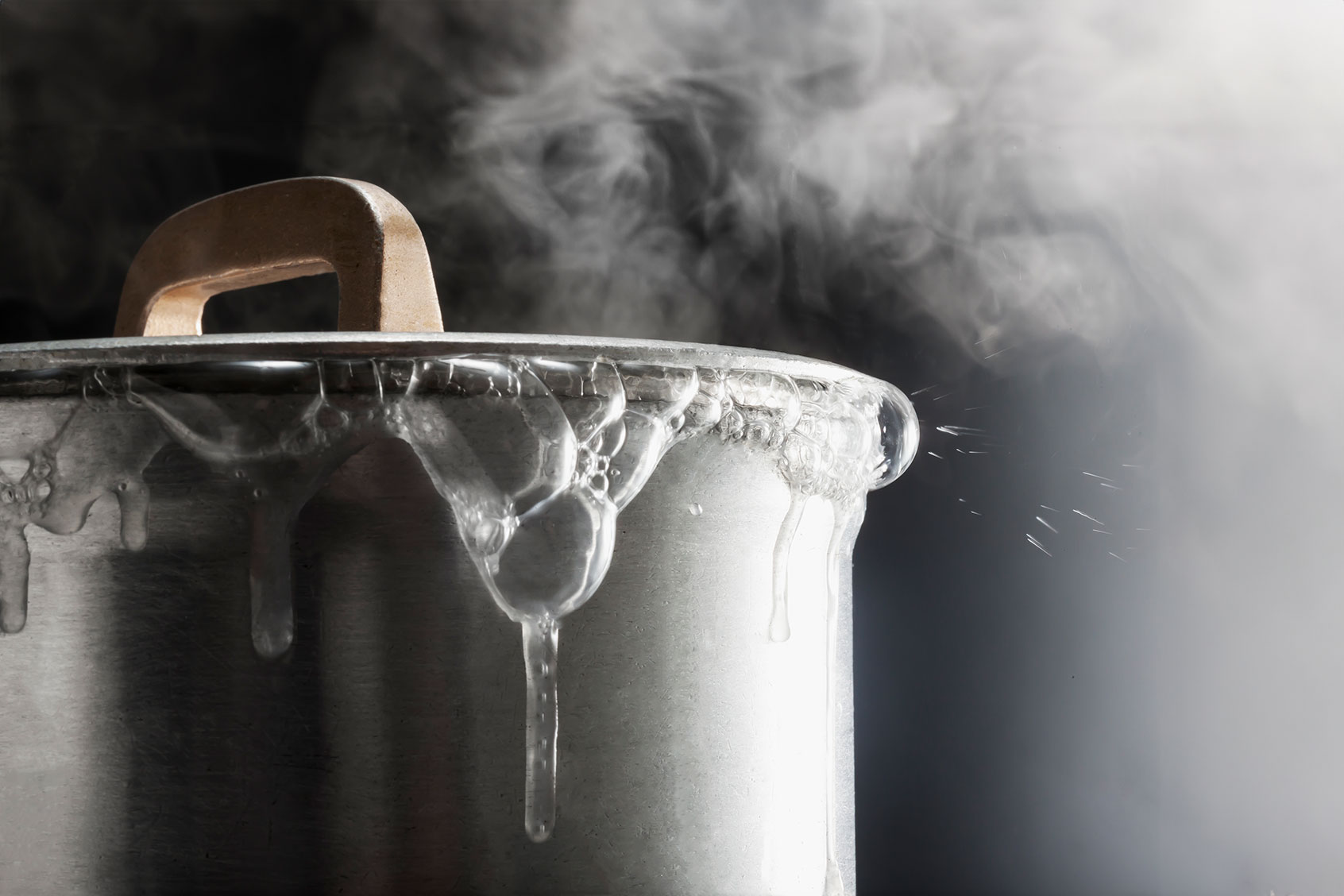For the longest time, I would be annoyed to see water as an ingredient in a recipe. I’d scoff and chortle and avoid it, thinking that water was superfluous, extraneous, not something that would “make or break” whatever it was I was cooking. To me, it wasn’t like a staple like oil, salt, pepper, or butter.
"If anything, this will just water down my dish!" I'd think to myself. This was until I came across Anne Burrell’s bolognese, which I’ve now written about a few times. Clearly, it was a formative moment in my cooking lessons.
In the original recipe, the "water" is listed right in the middle of the ingredient list and is the only item listed without an amount besides "kosher salt" and "high quality extra-virgin olive oil, for finishing."
After browning your mirepoix and meats, reducing red wine and adding tomato paste, the next step reads as such:
Add water to the pan until the water is about 1 inch above the meat. Toss in the bay leaves and the bundle of thyme and stir to combine everything. Bring to a boil and reduce to a simmer, stirring occasionally. As the water evaporates you will gradually need to add more, about 2 to 3 cups at a time. Don't be shy about adding water during the cooking process, you can always cook it out. This is a game of reduce and add more water. This is where big rich flavors develop. If you try to add all the water in the beginning you will have boiled meat sauce rather than a rich, thick meaty sauce.
After the first time making the dish, I realized this couldn’t have been more impactful.
A few months later, we had to make bolognese sauce in culinary school. I recall my classmates and I breaking up into groups and I took the lead in my group on our bolognese. After three hours, the teams presented their sauces. My classmates’ versions were watery, loose and poorly flavored, while mine was robust, thick and rich. Twenty minutes later, my bowl was wiped clean and my classmates’ pasta bowls were untouched, looking very much like “boiled meat sauce” rather than a cohesive, deliciously deep-flavored bolognese.
I credit the bulk of this to Anne Burrell. Her lesson about the game of reducing-and-adding repeatedly — while very time-consuming — produces the single best bolognese imaginable.
This also helped me to reimagine my understanding of water as an ingredient at large. It’s not something to discard or disregard; water can have major effects on the end results of many recipes and dishes. Everything from soups to salad dressings can be deeply affected by water, either by adding too much, too little, or by not properly cooking with it overall.
Want more great food writing and recipes? Subscribe to Salon Food's newsletter, The Bite.
Now, while I'm by no means a scientist, here’s how I see it: Reducing the sauce with extra water added allows the flavors to concentrate further, while also reducing the consistency of the sauce until it's thick and rich. In addition, this prevents the sauce (or the pan itself, let’s be real) from burning or scalding, while still allowing flavor to develop as the water evaporates, the spices bloom, and so on and so forth. This technique is also used in a slew of other dishes, such as soups, stews, gravies, pan sauces, purees, reductions, jams, jellies, chutneys and marmalades
Water deepens flavors, changes textures and influences consistency. It can help mitigate the bitter bite of raw onion, it can create a soup or stew that is softer in its flavoring and not as aggressive, it can cut the sharpness of a too-tart vinegar, and of course, it is necessary when it comes to steaming, boiling, blanching — and it should go without saying — cooking pasta!
It's necessary to "trap" the bright, verdant green of freshly cooked vegetables (an ice bath is a wild thing) and also the prime ingredient in brines. It's also something that permeates. Water, at its core, is flavorless and colorless. What you add to it will imbue your entire dish.
We need your help to stay independent
Hence why you need to season your pasta water — as Burrell herself says, "like the sea" — or, no matter how good your sauce is, you will be able to tell when you're eating unseasoned pasta. If you don't salt your water prior to cooking that noodle, it will be evident no matter what that pasta is served with or alongside — trust me.
It’s not just Burrell, either; many “big name” chefs are known to include water in their recipes, such as Alton Brown's "cold water pasta method," every recipe you've ever seen for perfect poached or boiled eggs, and even many cake recipes. It’s also a necessity in many pasta recipes. I'm sure you’ve heard or read the term “starchy pasta cooking water” or its many iterations in recent years — perhaps even in my own recipes!
In some instances, it’s more of a vehicle, or even a vessel, than it is an ingredient in and of itself. That’s how important water can be to many, many recipes. Water, which may seem like something to easily take for granted, it’s a necessity in many instances. Look at stock or broth. Without water, it’s … bones? (cue that Brenda scene from “Scary Movie 2”). Clearly, water is not something to scoff at.
So, next time you spot water on an ingredient list, don’t be haughty and laugh it off like me a decade ago. Realize that maybe something you deem unimportant or nonessential is actually anything but — and might actually be the thing that drives the flavor of your final dish forward more than any other ingredient. Well, aside from maybe salt, of course.

